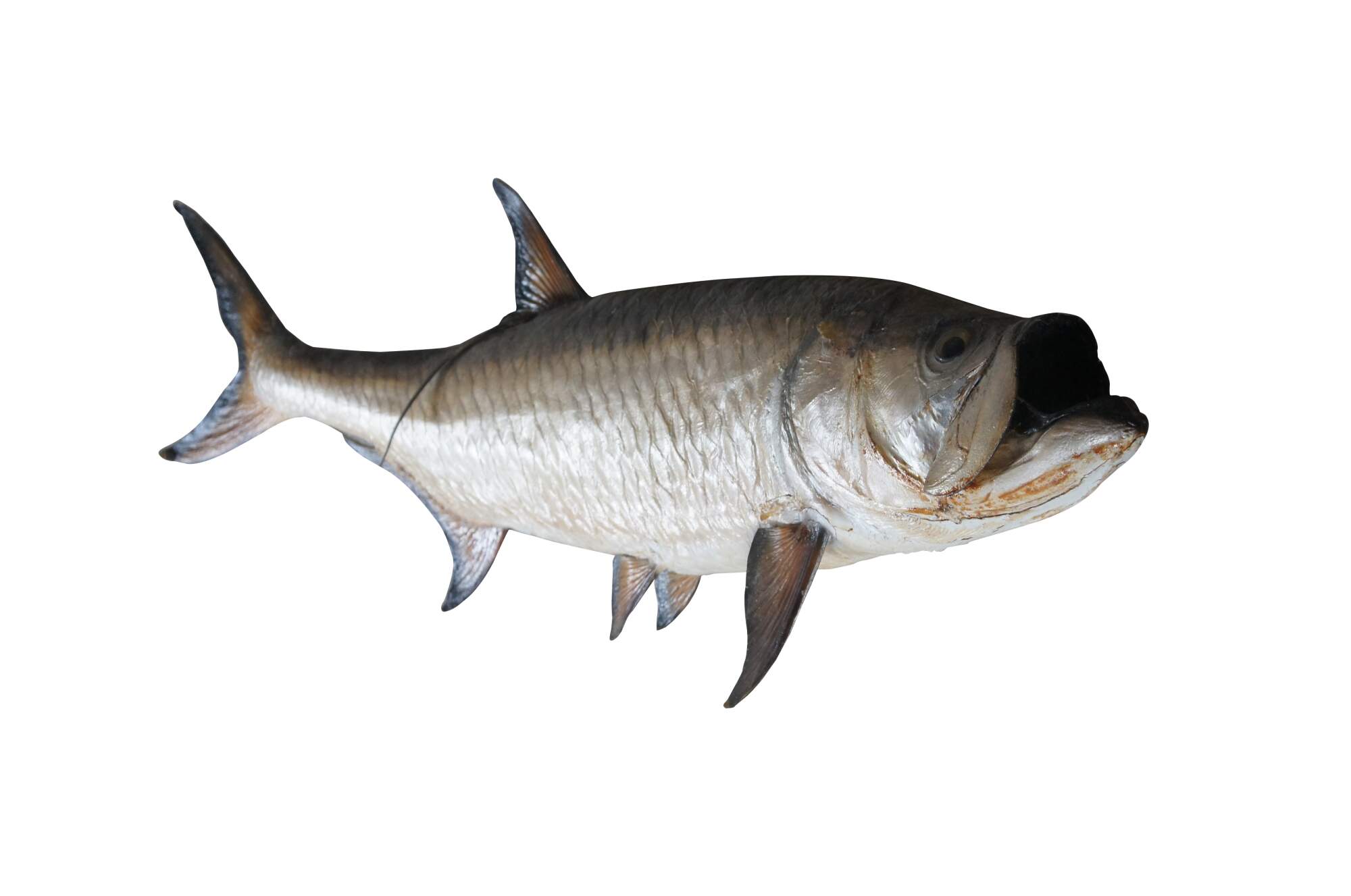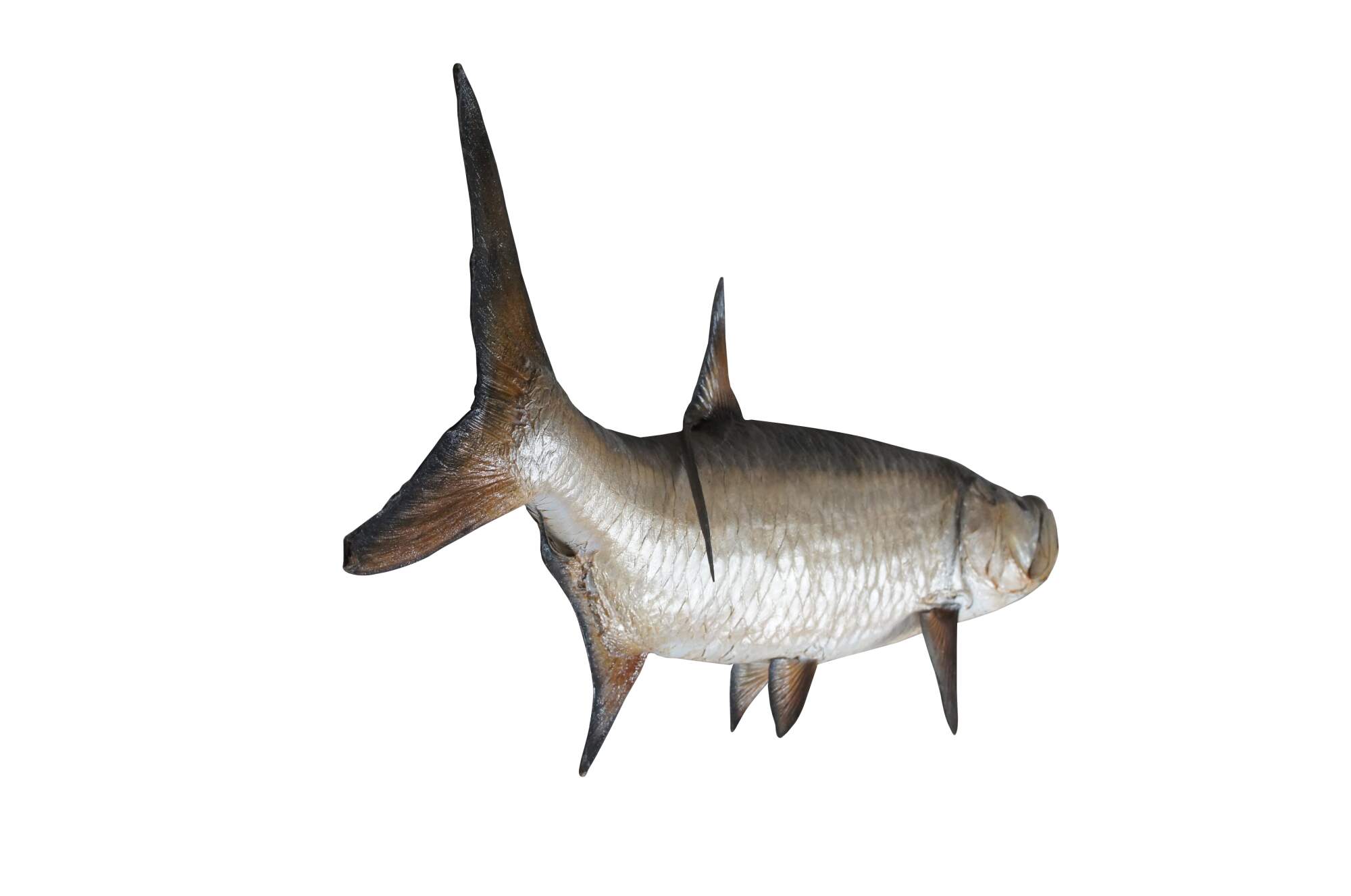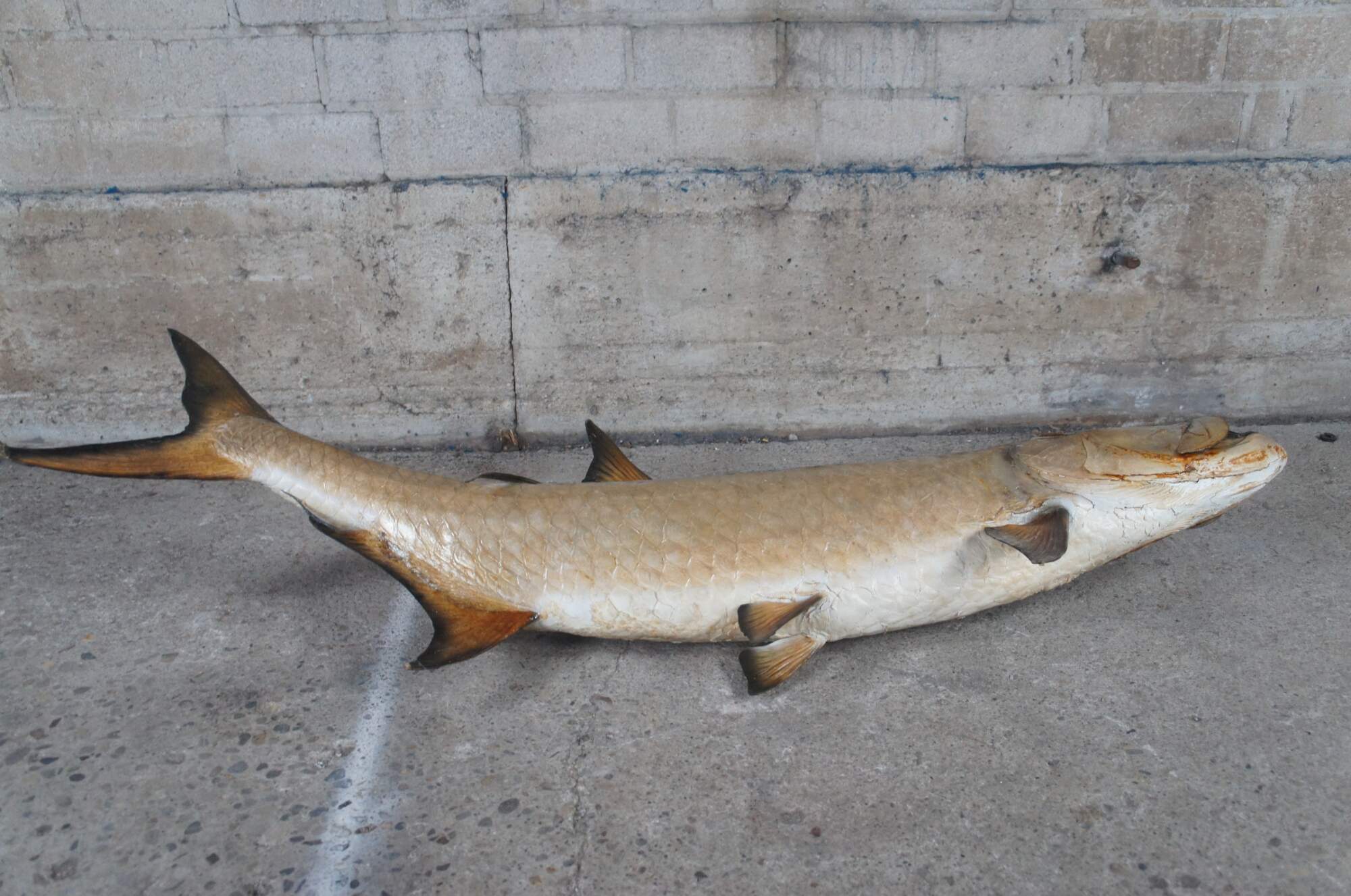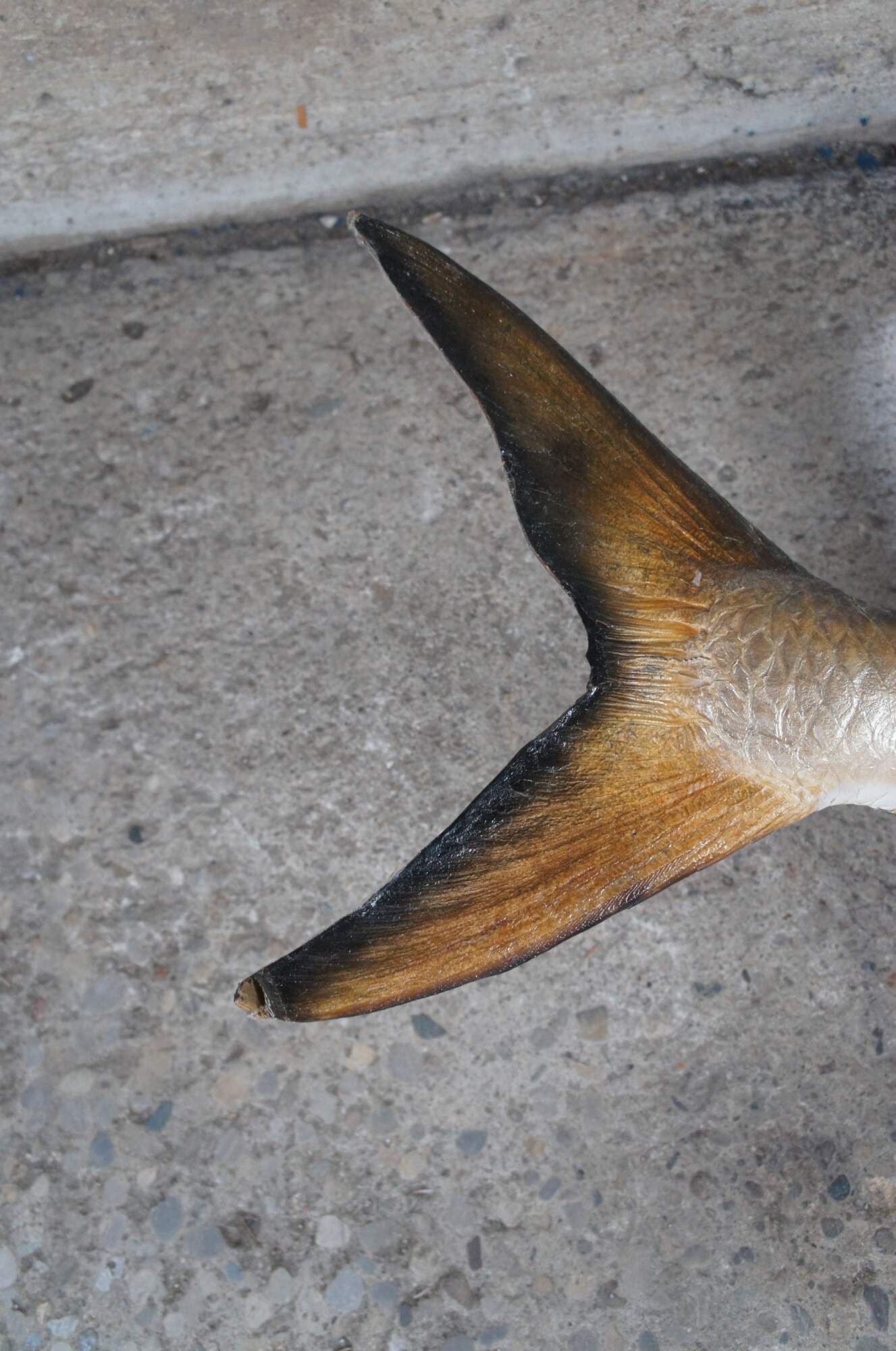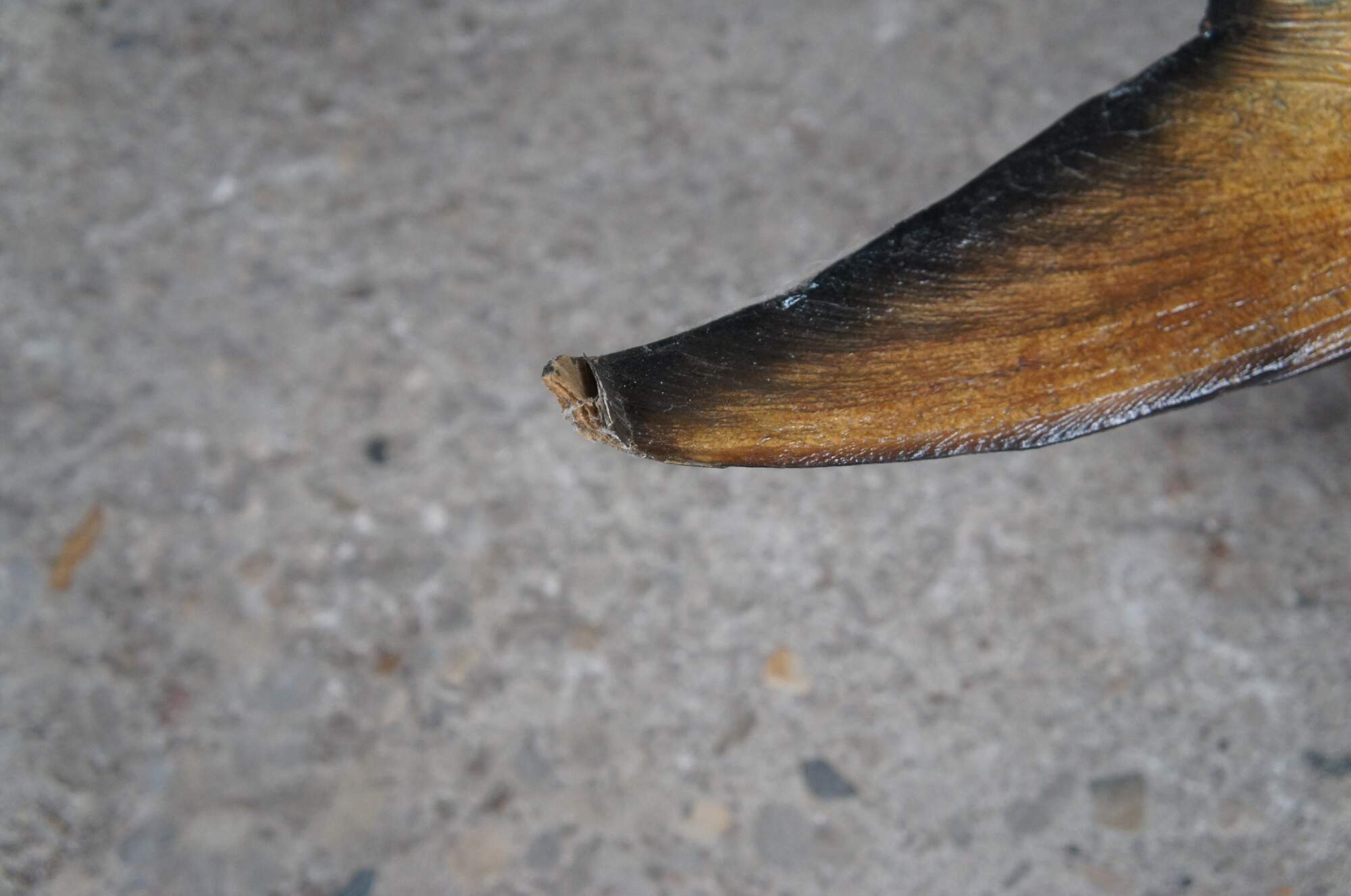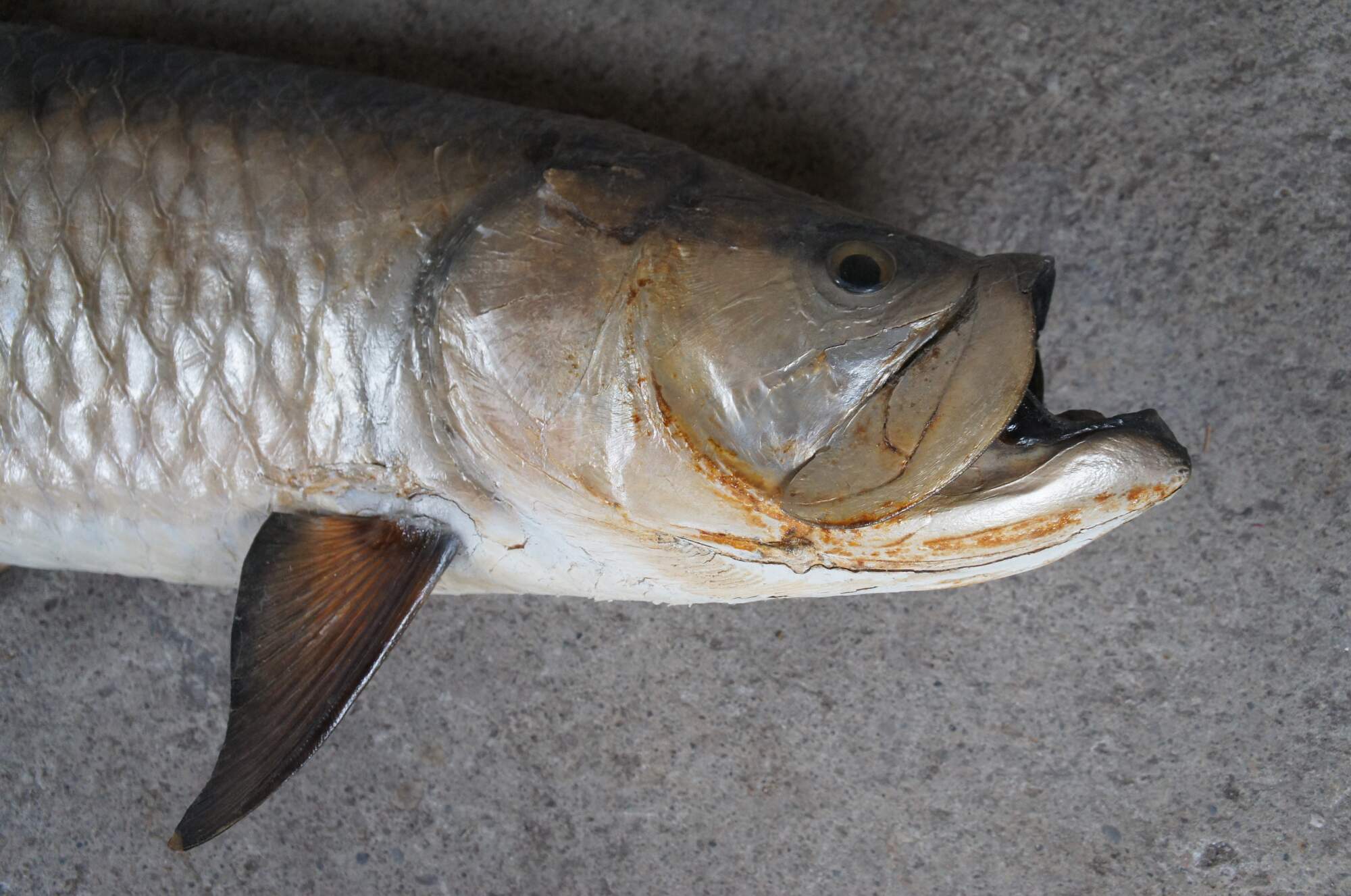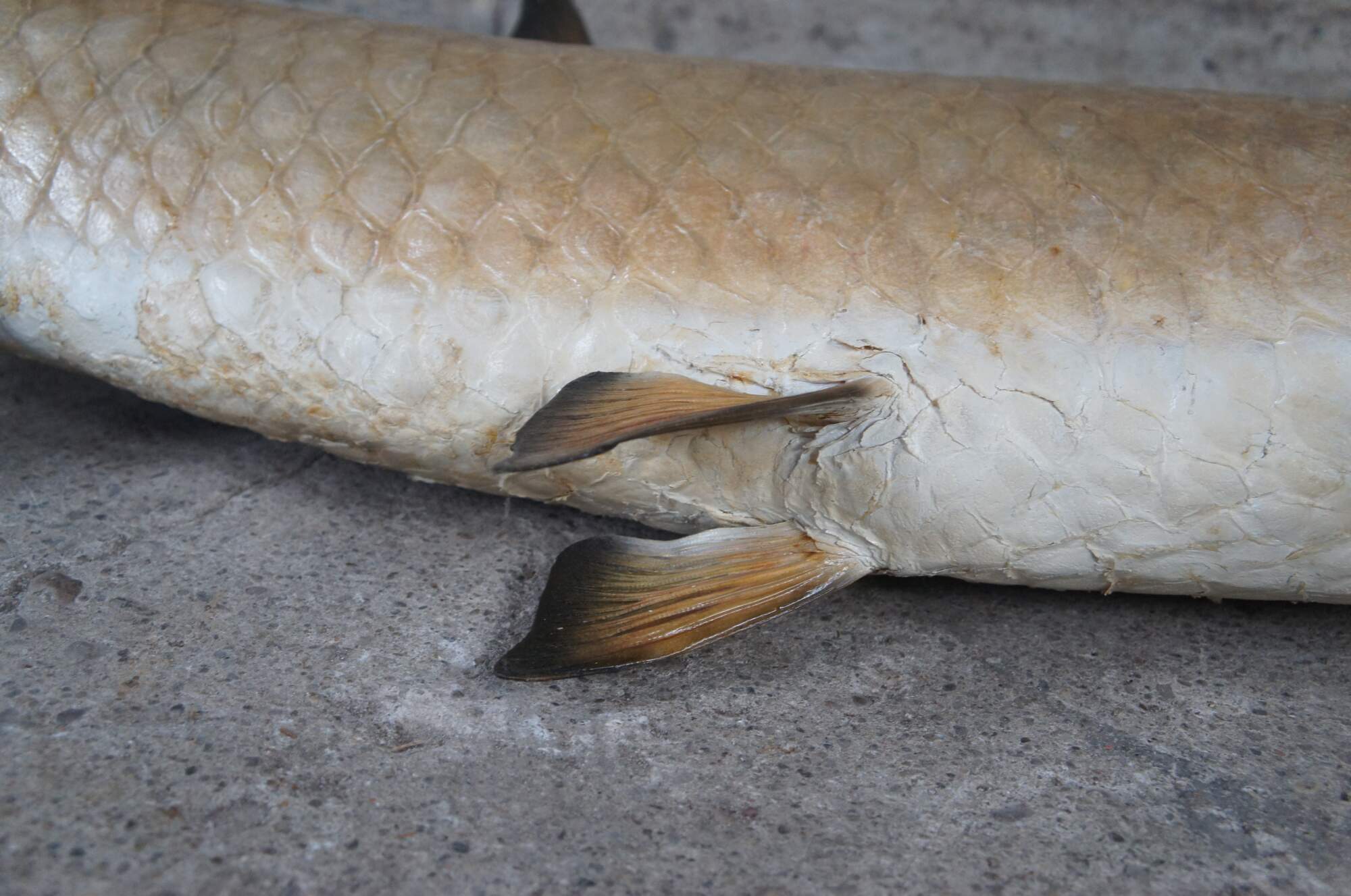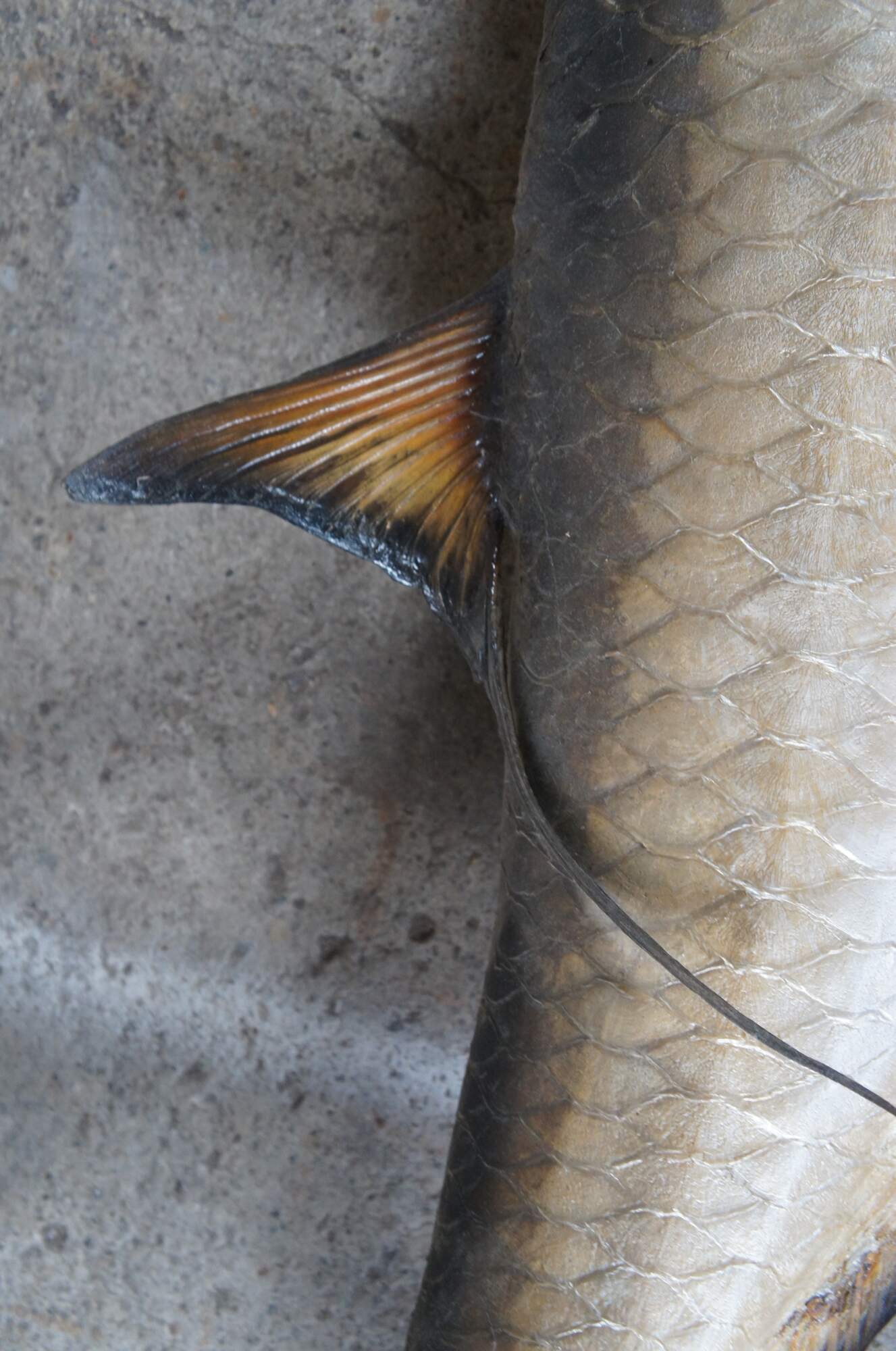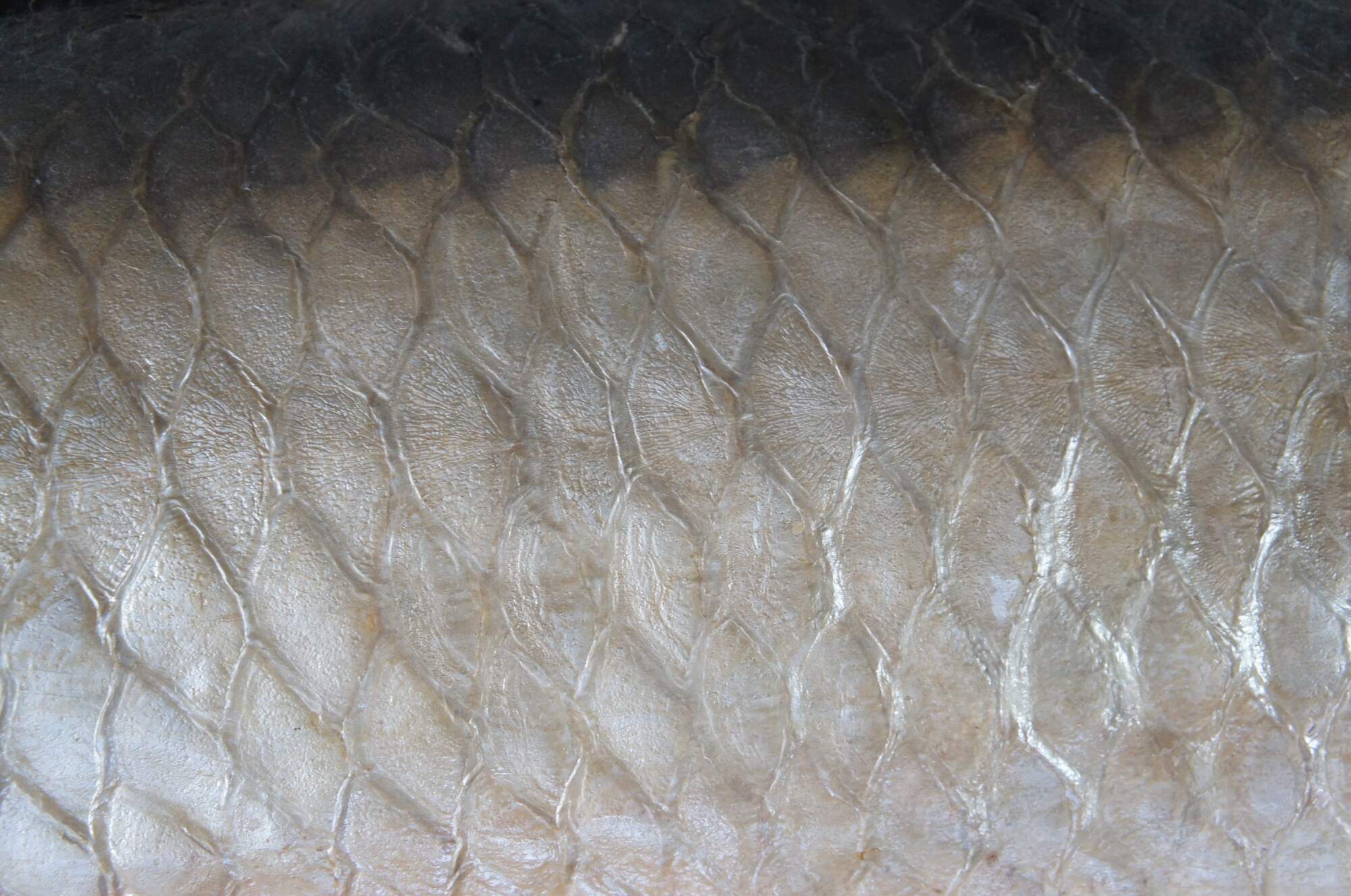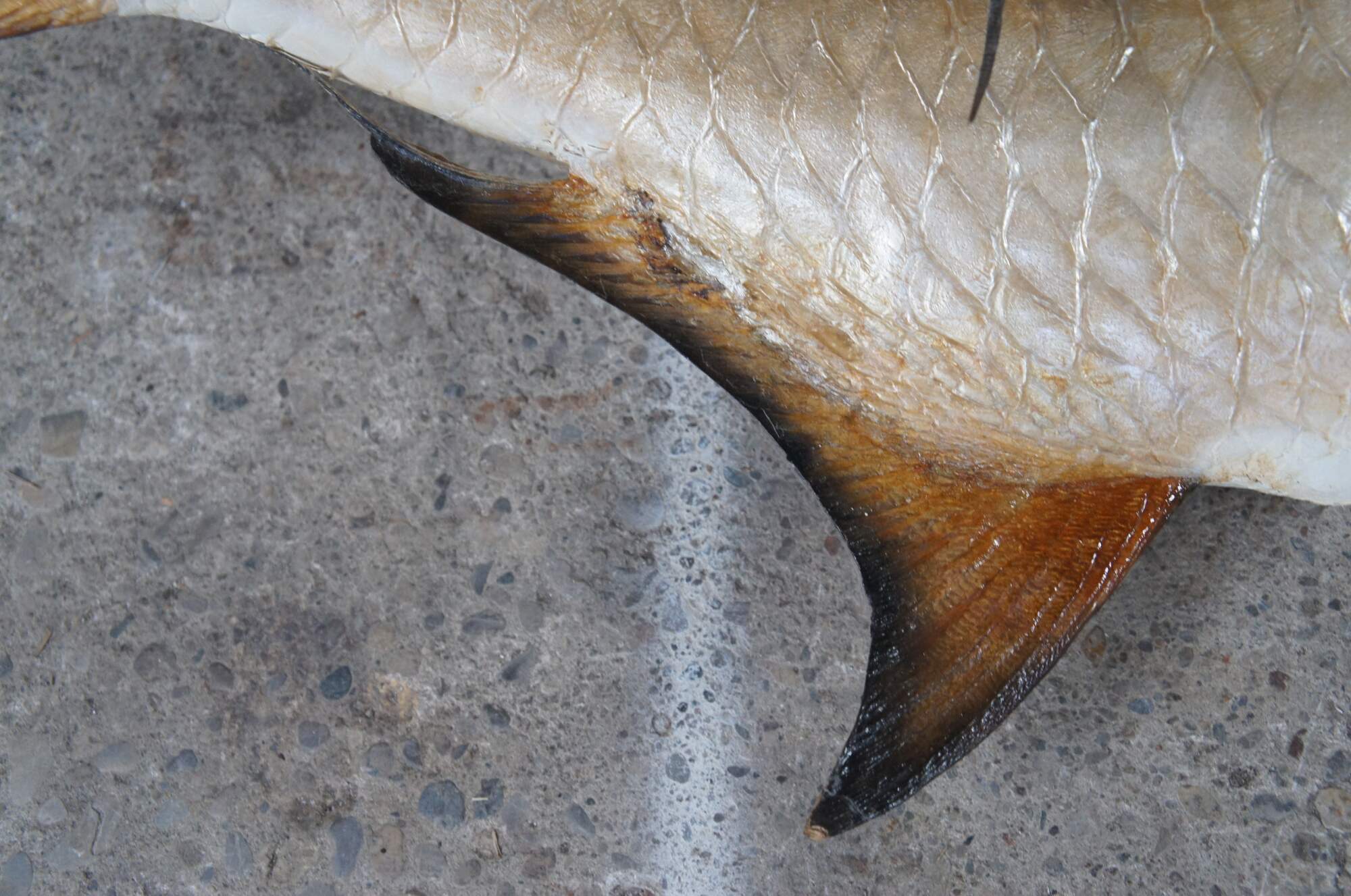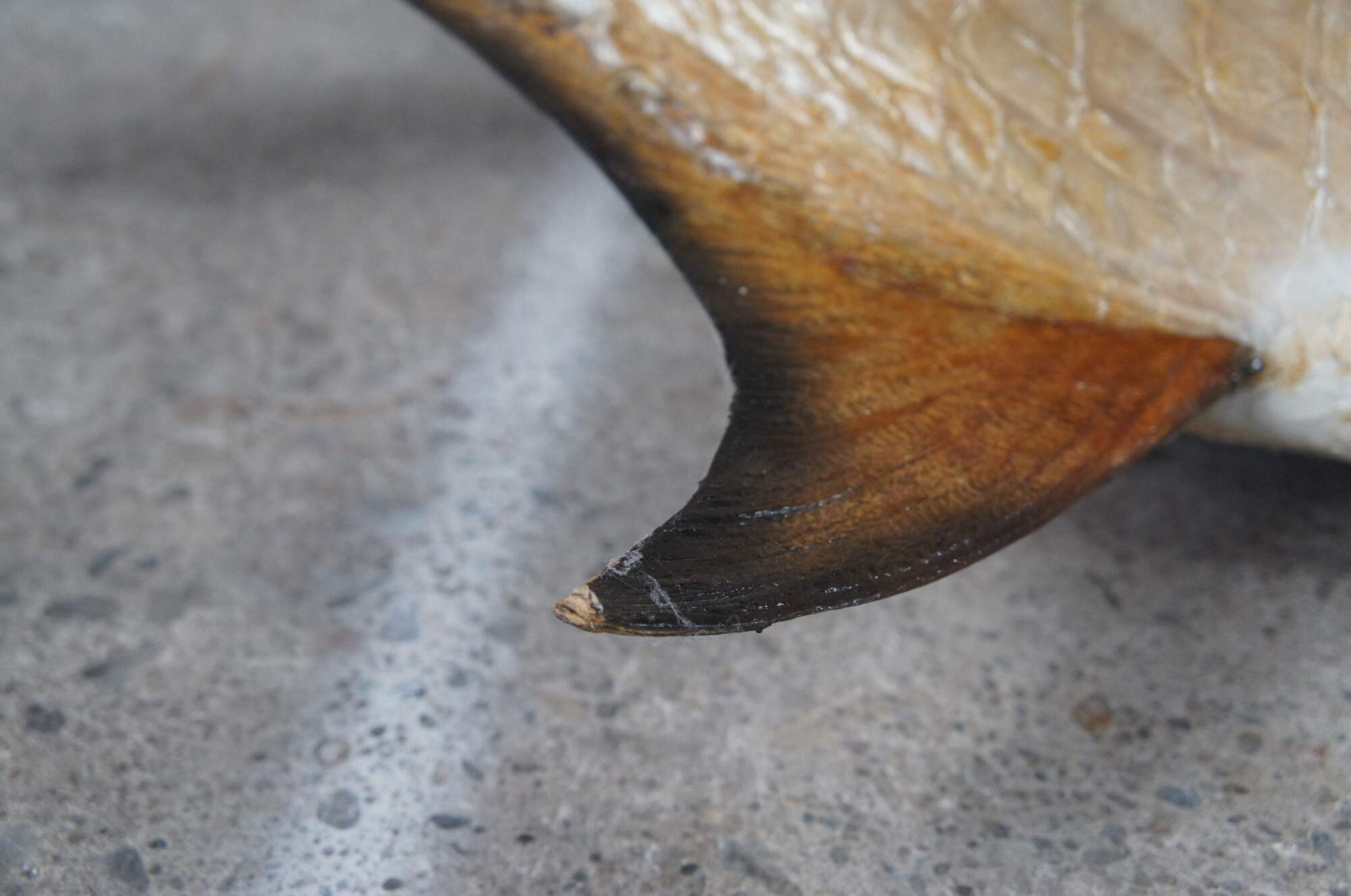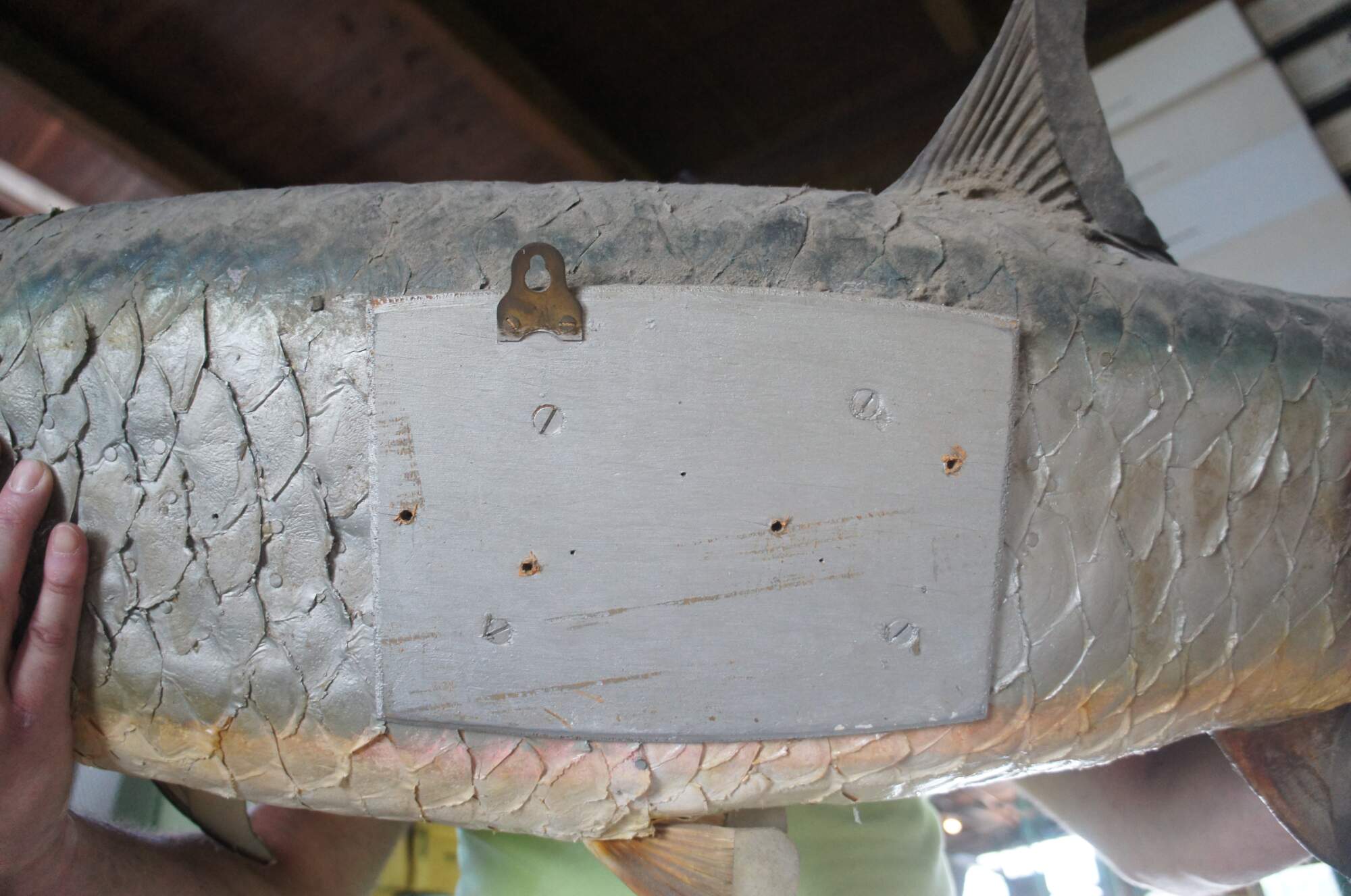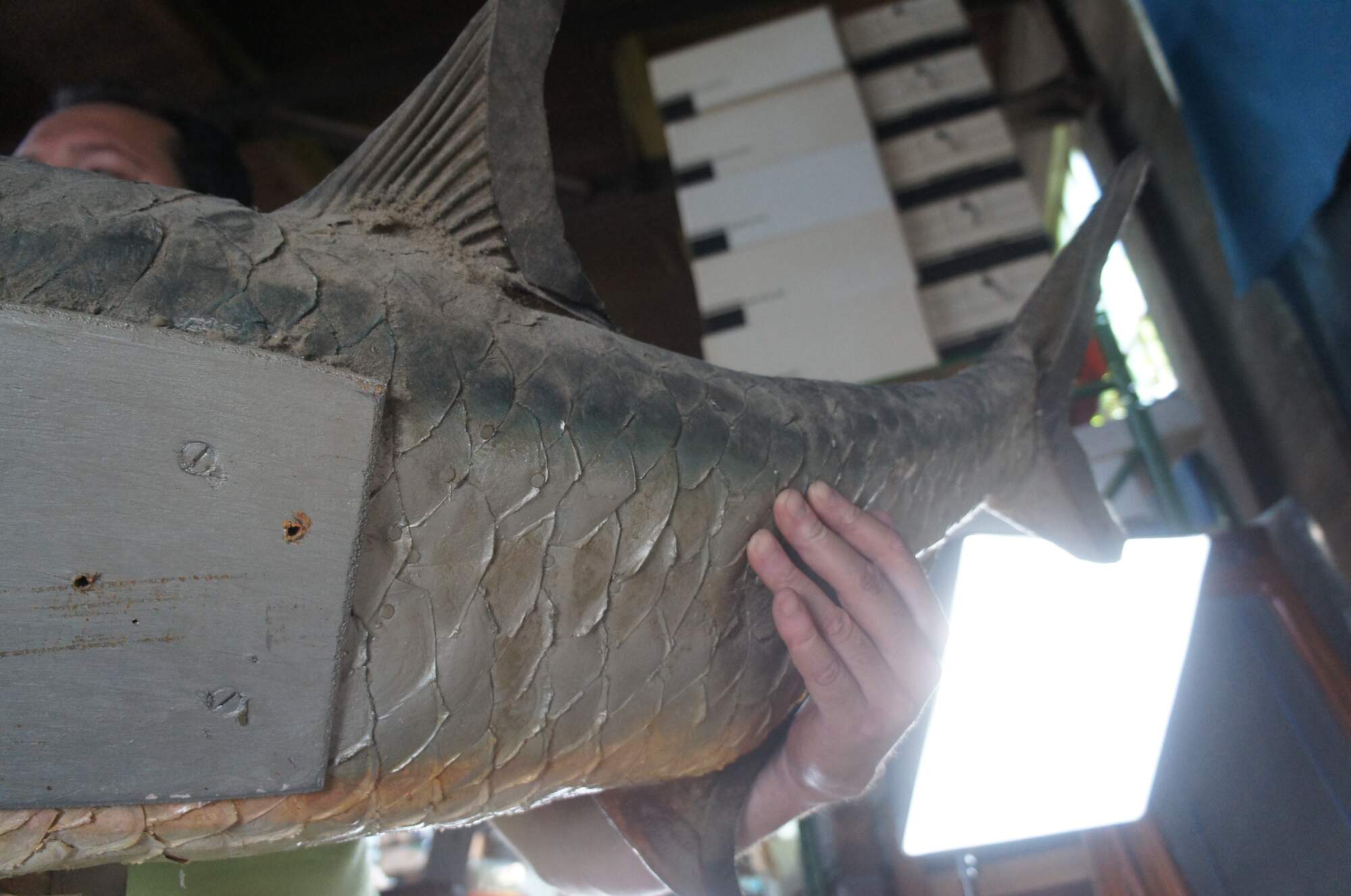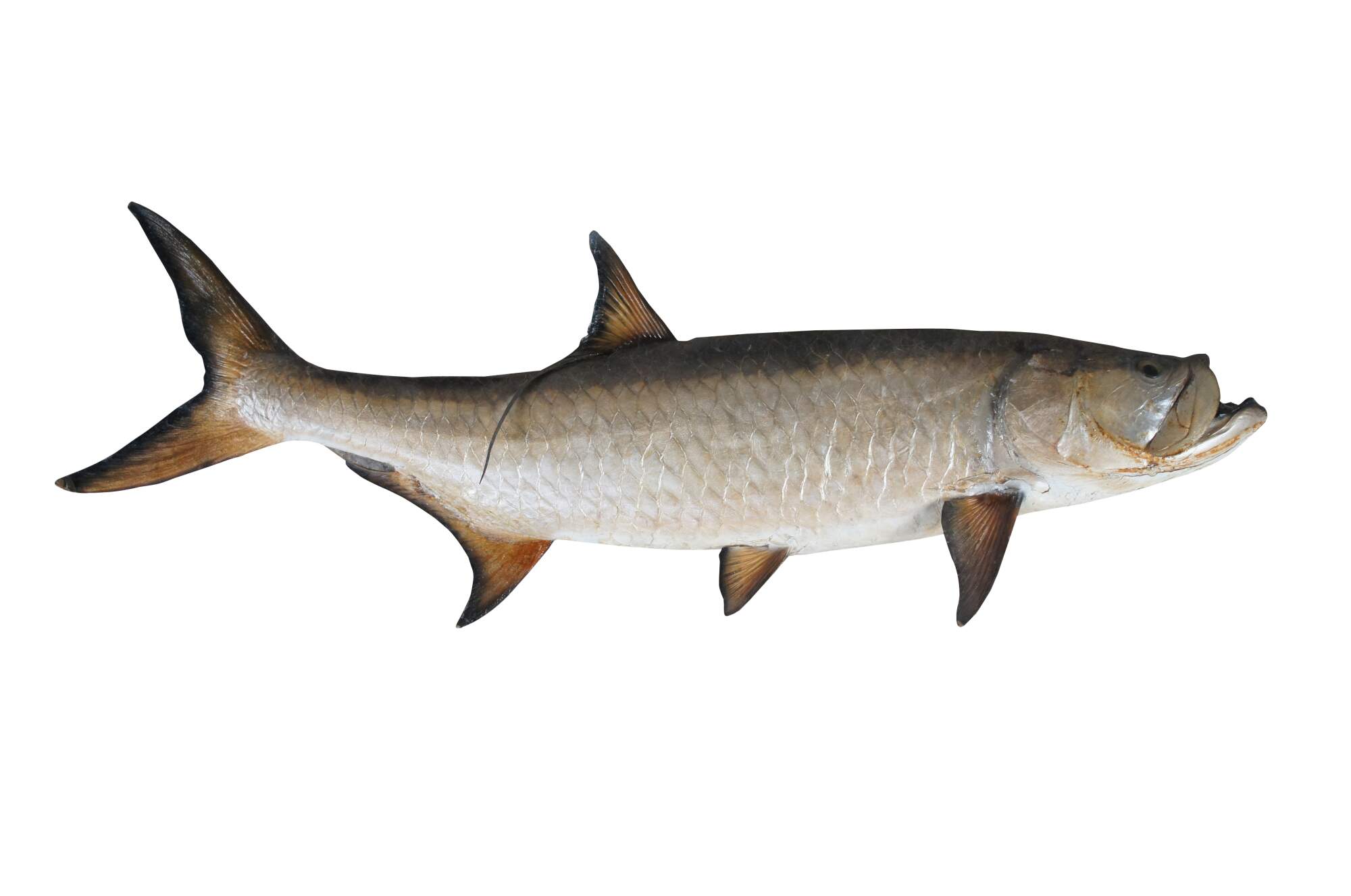
Vintage Tarpon Real Skin Taxidermy Fish Mount Fishing Lodge Home Decor 59"
Sold
Shipping:
Free Shipping Included
Delivery:
Estimated 2-15 Business Days
Payments:
Credit Card, Check, Cash, PayPal, Apple Pay, Venmo
Returns:
30 Days 100% Money Back Guarantee, Buyer Pays Return Shipping
Description
Species Details
Species Name: Megalops Atlanticus
Species Family: Megalopidae
Species Order: Elopiformes
Habitat: Inshore, Flats, Backcountry
Weight: 25 - 63 lbs.
Length: 48"" - 96""
Tarpon (Megalops Atlanticus)
A giant 6-foot Tarpon jumping several feet out of the water is a sight few anglers will ever forget! This bucket list game fish migrates between the Florida Keys, Costa Rica and the Florida Panhandle. The Florida Keys is widely thought of as the tarpon fishing capital of the world.
Florida Bay is a prime location, particularly in the deeper moats around some of the smaller keys and the channels that cut through the mud and grass flats. Tarpon frequent the Atlantic and Gulf ""strips,"" the edges of flats around Islamorada, Marathon, and Key West. The same can be said for Key West Harbor.
Tarpons are classified into two species: M. atlanticus (Atlantic Ocean tarpon) and M. atlanticus cyprinoides (Indo-Pacific tarpon). Atlantic Tarpon can be found along the western Atlantic coast from Virginia to Brazil, as well as in the Caribbean and along the Gulf of Mexico coast.
Tarpon
Tarpon Description and Typical Size
Tarpon have thin bodies covered with large flat scales. One of its more recognizable characteristics is its large lower jaw and mouth points upward. They are shimmery silver with blue-grey or greenish backs and dark fins and tails. The scales on top of the Tarpon body are darker than that underneath. This color makes it difficult for predators to see the fish when viewed from above or below. The tail has a deep fork, and the dorsal fin is elongated and thin.
Adult Tarpon can grow up to about 8 feet long and weigh up to 280 pounds, but the more common size is 4 feet and 80 - 100 pounds. Their lifespan can be up to 50 years or more.
Interesting Facts
Tarpon are known for their acrobatics and can jump 10 feet out of the water and swim up to 35 mph.
They are close relatives of Skipjack and Ladyfish.
Although edible, people rarely eat them because of their small, hard-to-clean bones.
Tarpon has been around for a long time - 125 million years kind of time!
Tarpon are capable of filling themselves with air. This gives it a predatory advantage when oxygen levels in the water are low.
Diet
Tarpon are strictly carnivorous; they hunt mid-water bait fish, both small fish and larger fish they swallow whole.
Condition
Good Vintage Condition; some edgewear to the fins
Dimensions
59" x 20" x 8"
